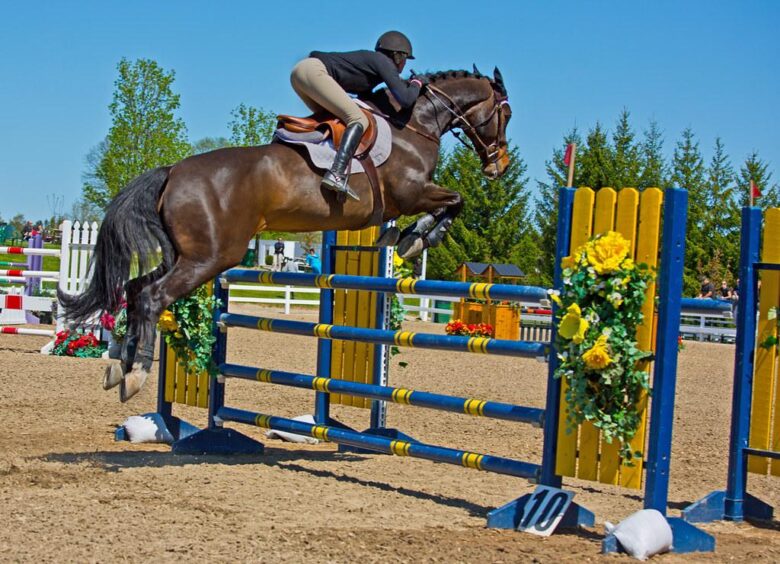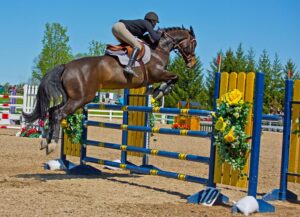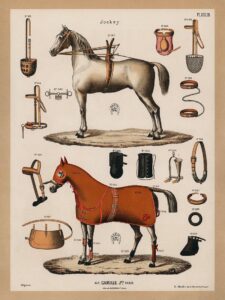The world of equestrian sport is a unique blend of grace, strength, and precision. While some may argue that sitting atop a horse and guiding it around a course cannot be considered a sport, those deeply involved in the equestrian community know the truth. Equestrian is not just a hobby or a pastime – it is a demanding and competitive sport that requires athletes to train rigorously and hone their skills to achieve success. Let’s delve into the world of equestrian to uncover the athleticism, dedication, and sheer determination required to excel in this captivating sport.
Unveiling the Physical Demands of Equestrian as a Sport
Equestrian is much more than just horseback riding; it is a demanding sport that requires a high level of physical fitness and skill. Riders must not only have excellent balance and coordination, but also strength, endurance, and flexibility to be successful in the sport.
Some of the physical demands of equestrian as a sport include:
- Core Strength: Riders must have a strong core to maintain their balance and posture while riding.
- Leg Strength: Riders use their legs to communicate with the horse and must have strong leg muscles to effectively cue the horse.
- Cardiovascular Endurance: Equestrian events can be physically taxing, requiring riders to have good cardiovascular endurance to withstand the physical exertion.
| Physical Demands | Importance |
|---|---|
| Balance and Coordination | Essential for effective riding |
| Strength and Endurance | Needed for long hours in the saddle |
Overall, equestrian is a sport that requires a unique combination of physical attributes and skills. It is a challenging and rewarding sport that showcases the strong bond between horse and rider.
Exploring the Technical Skills Required for Success in Equestrian
When people think of sports, activities like running, swimming, or playing team sports like soccer or basketball often come to mind. Equestrian, however, is often overlooked as a sport despite requiring a unique set of technical skills for success. In order to excel in the world of equestrian, athletes must possess a combination of physical abilities, mental agility, and specialized knowledge.
One key technical skill required for success in equestrian is balance. Riders must have exceptional balance in order to stay centered and maintain control while on horseback. This skill is especially important when performing complex maneuvers such as jumps or tight turns. Additionally, riders must have a strong core in order to absorb the motion of the horse and remain stable in the saddle.
Another crucial technical skill for equestrian success is coordination. Riders must be able to communicate effectively with their horses through subtle cues and movements. This requires a high level of coordination between the rider’s hands, legs, and seat in order to guide the horse through various movements and obstacles. Developing this coordination takes time and practice, but is essential for achieving success in the world of equestrian sports.
Examining the Competitive Nature of Equestrian Events
Equestrian events have long been a staple of competitive sports, requiring a unique combination of athletic ability, strategy, and partnership with a horse. Riders must demonstrate skill, precision, and grace as they navigate obstacles and perform intricate maneuvers in disciplines such as show jumping, dressage, and cross-country. The competitive nature of equestrian events challenges participants to continuously improve their technique and build a strong bond with their equine partners.
One key aspect of equestrian competitions is the element of risk and unpredictability. Riders must navigate courses that present a variety of challenges, from tight turns and high jumps to complex patterns and obstacles. This requires quick thinking, adaptability, and a deep understanding of the horse’s behavior and capabilities. The competitive nature of equestrian events fosters a sense of achievement and camaraderie among participants as they strive to push their limits and achieve success in the ring.
Furthermore, the physical demands of equestrian sports cannot be underestimated. Riders must possess strength, agility, and balance to effectively communicate with their horses and execute precise movements. The intense training regimens and dedication required to excel in equestrian events highlight the sport’s rigorous nature and the commitment of its participants to continually improve and hone their skills.
Understanding the Mental Strength Needed to Excel in Equestrian Sport
Competing in equestrian sports requires a unique blend of physical and mental strength. While many people may not immediately think of horseback riding as a sport, it is a physically demanding activity that requires a great deal of skill and focus. Riders must have a strong core, excellent balance, and good coordination to control their horse effectively. In addition to the physical aspects, equestrian sports also require a high level of mental toughness and concentration.
One of the key mental skills needed to excel in equestrian sports is resilience. Riders must be able to bounce back from setbacks, such as a refusal at a jump or a less-than-perfect dressage test. It’s important for riders to stay focused on the task at hand and not let mistakes or mishaps shake their confidence. Developing resilience takes time and practice, but it is crucial for success in equestrian sports.
Another important mental skill for equestrian athletes is composure under pressure. Competing in events can be nerve-wracking, especially when there is a crowd watching or a championship title on the line. Riders must be able to stay calm and collected, even in high-pressure situations. Maintaining composure can help riders make quick decisions, stay focused on their ride, and perform at their best when it matters most.
Enhancing Performance in Equestrian through Proper Training and Nutrition
Equestrian is a demanding sport that requires a combination of skill, athleticism, and a strong connection between horse and rider. Many people may not realize just how physically and mentally challenging this sport can be. Riders must have excellent balance, coordination, and core strength to control the powerful movements of their horse. It is not just about sitting on the horse and letting it do all the work; riders actively communicate with their horse through subtle cues and movements.
Proper training is essential for equestrians to enhance their performance and reach their full potential. This includes regular riding sessions, working on specific techniques, such as jumping or dressage, and building a strong partnership with their horse. In addition to training, nutrition plays a crucial role in supporting the physical demands of the sport. Equestrians need to fuel their bodies with the right nutrients to maintain energy levels, muscle strength, and overall health.
Whether competing in dressage, show jumping, or eventing, equestrians must constantly strive to improve their skills and technique. This requires dedication, hard work, and a commitment to ongoing training and development. By focusing on both physical conditioning and proper nutrition, equestrians can enhance their performance in the sport and achieve success in the arena.
The Conclusion
In conclusion, equestrian is not just a hobby or a leisurely activity, but a challenging and demanding sport that requires skill, athleticism, and dedication. From the bond between rider and horse to the precision and grace of the movements, equestrian encompasses all the elements of a true athletic endeavor. So next time you see a rider in action, remember – they are not just sitting on a horse, they are competing in a sport that requires strength, agility, and determination. Equestrian truly is a sport like no other.



